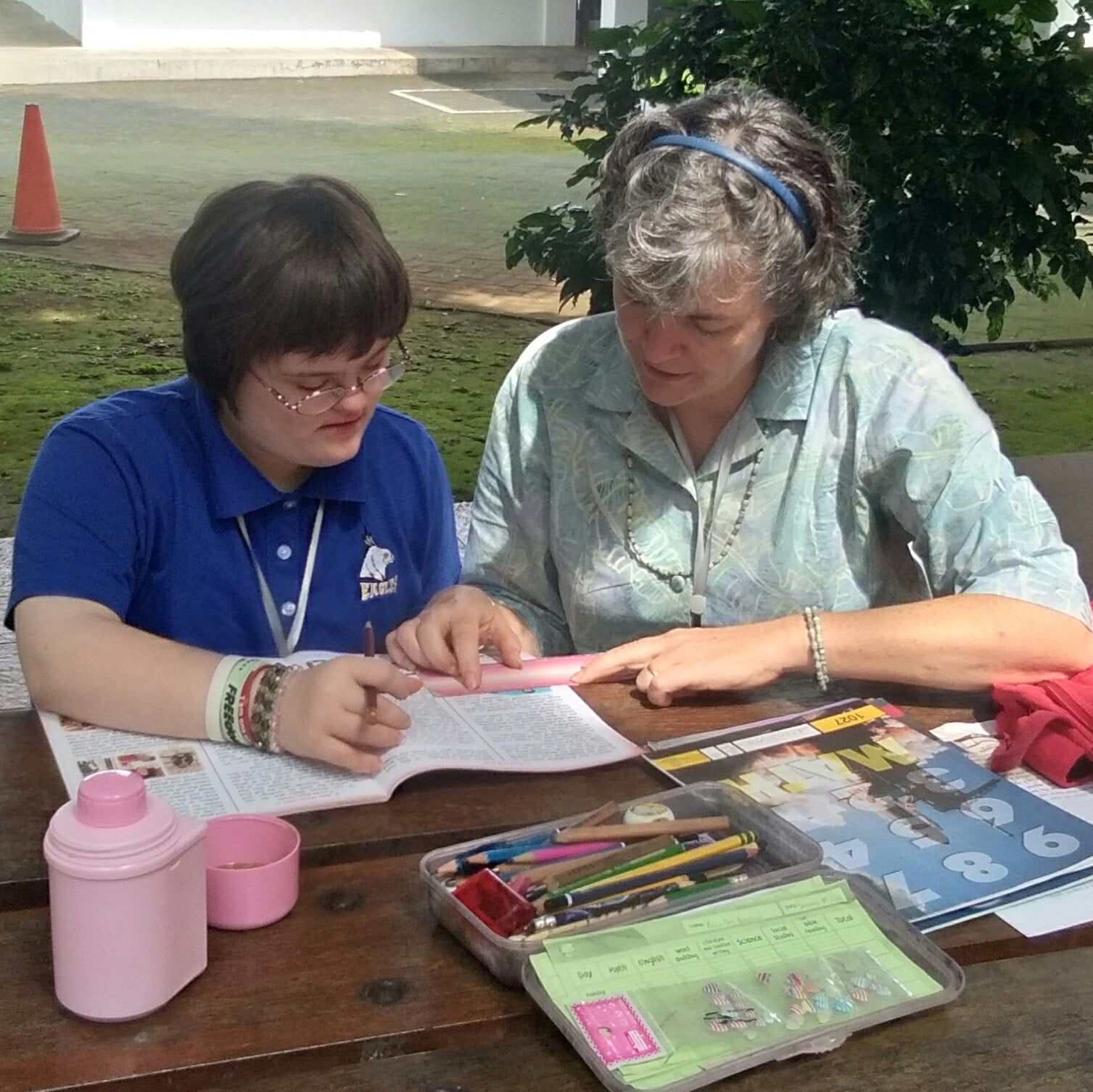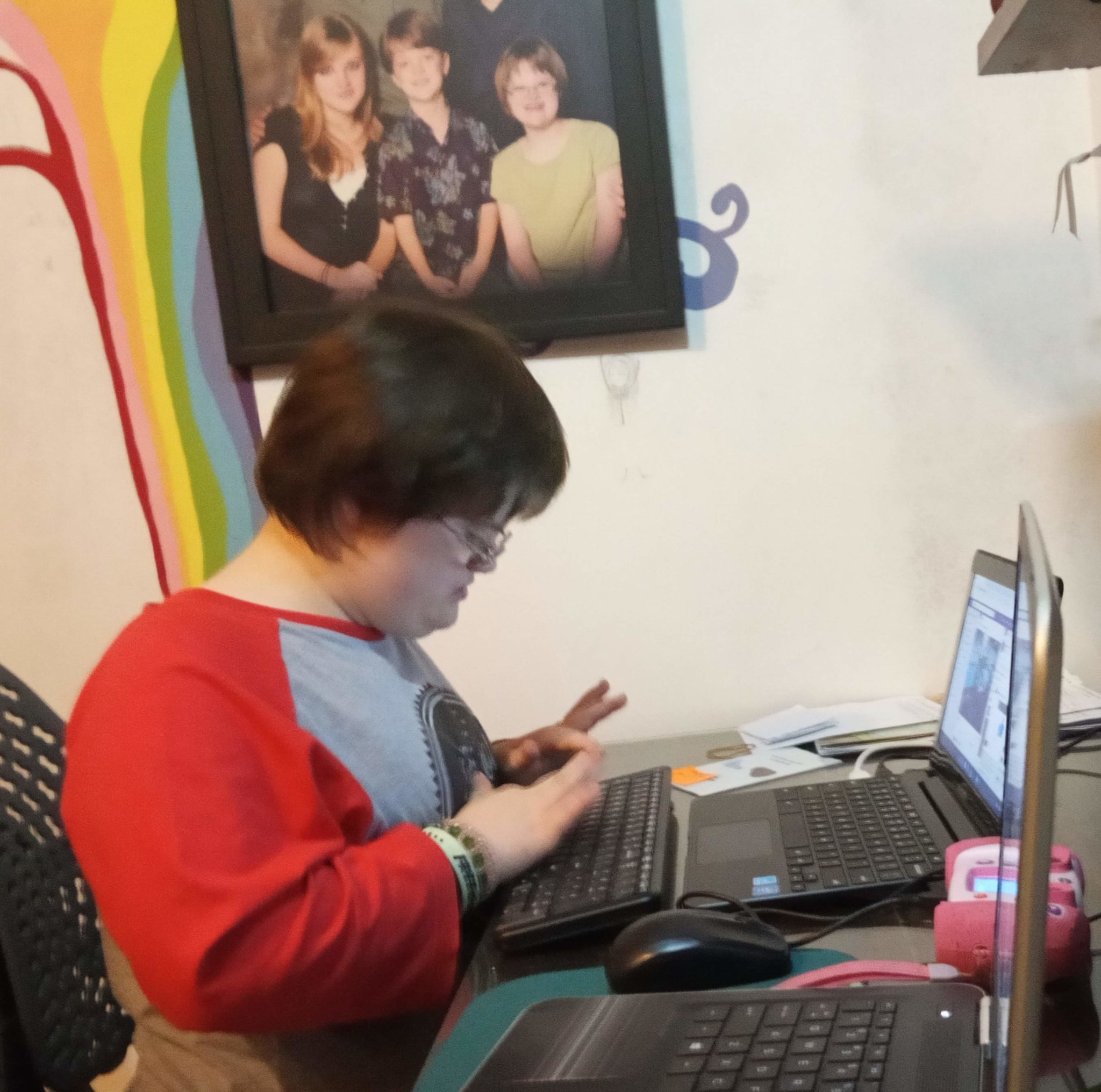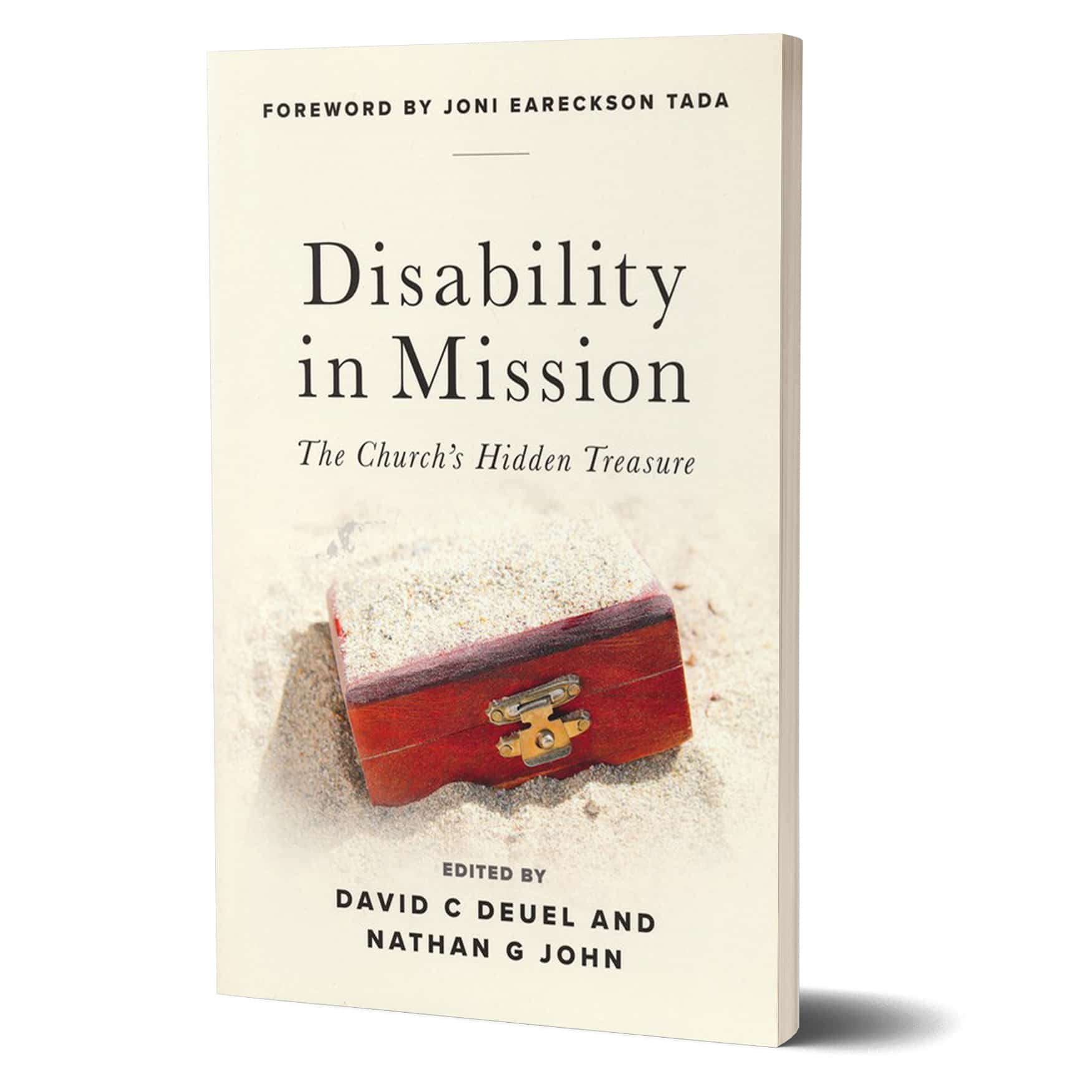Beyond the Visa Glitch
“Having to do the harder thing has required us to exercise faith, which put us in a position to experience God’s miraculous provision.”
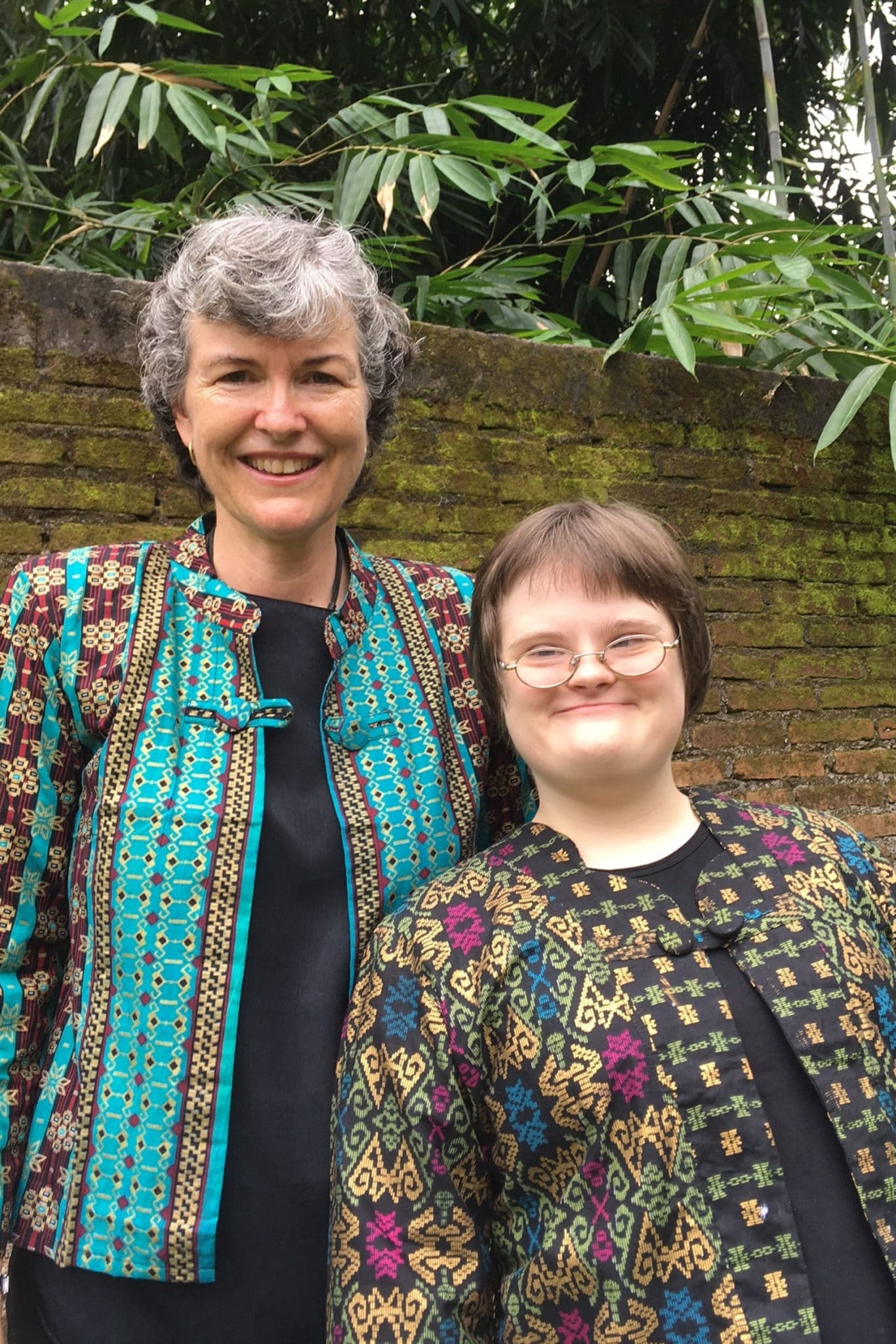 I met my husband, Brent, in 1988 at Gordon-Conwell Theological Seminary in Boston. He was known as ‘Mr. Indonesia’ among our fellow seminarians because he knew EXACTLY where he was going after graduation, unlike the rest of us.
I met my husband, Brent, in 1988 at Gordon-Conwell Theological Seminary in Boston. He was known as ‘Mr. Indonesia’ among our fellow seminarians because he knew EXACTLY where he was going after graduation, unlike the rest of us.
I, myself, knew I was called to missions, but because I was a fairly new disciple of Jesus Christ, I didn’t know where in the world God would send me or how to get there – that is, until I dated and married ‘Mr. Indonesia!’ And here we are, 26 years later, still serving the Lord in Java, Indonesia, with our call expanded to include disability ministry when our daughter, Anna Joy, was born in 1999 with Down syndrome.
Initially, I struggled to understand how a cognitively disabled child fit with our call to overseas mission work. But through a recent visa glitch that threatened our continued service in Indonesia, I discovered that Anna, too, has a very unique call on her life; and it’s not just to carry Down syndrome with dignity and grace.
God’s purposes are often fulfilled through weakness and disability, and this was about to go on display.
But, it took a crisis to get us moving in this direction. Here’s how it happened…
The Visa Challenge
I could tell my husband was tense. He had just gotten off the phone with our visa agent, the Indonesian responsible to negotiate with the immigration office for a renewal of our permission to live and work in the country. Visa renewal provided an annual reminder to us of just how tenuous was our claim to remain in the land. Though we’d lived in Indonesia for 24 years, we were still considered ‘guests’ of the Indonesian government and could be asked to leave at any time if anything was ever found to be out of order. Unlike many of our colleagues, we had successfully managed to have 24 years of uninterrupted service in the country. But this year would prove to be different, and it showed on my husband’s face. We’d hit a glitch.
This year, it wasn’t about my husband and me. It was about our daughter, Anna Joy, who had just turned 18 years old and was now considered a ‘legal adult’ in the eyes of the Indonesian government. As such, she needed to have her own visa, completely separate from her parents. Normally, this would not be a problem. But where it broke down in our case was that our daughter has Down syndrome. Technically, she was everything the Indonesian government said she was: a legal adult. But on a practical level, this was a conundrum.
Visa Options
Our visa agent let us know that he might be able to get Anna a student visa that could be renewed for the next three years until she graduated from high school. But after that, in order to stay in the country, Anna would have to prove she was capable of doing some type of work that no other Indonesian could do in order to get a work permit. Without a work permit, she could not stay in the country.
She, and we, would have to leave.
It’s not like my husband and I never knew this day would come, the day when Anna would need to have her own visa. But we had been assured by our visa agent over the years that Indonesia, like other Southeast Asian countries, had what is called a ‘humanitarian’ visa. With compassion in mind, the humanitarian visa recognized that some exceptional cases do exist where disabled children and/or aging parents need to continue to remain with the person holding the visa and are granted that permission on humanitarian grounds. However, when he went to apply for Anna to get the humanitarian visa, our visa agent discovered that with the recent change in president, the laws had changed. Indonesia’s humanitarian visa had been done away with.
What To Do?!
Figuratively speaking, we were up against the Red Sea with Pharaoh’s army bearing down on us. If we were going to continue to serve in Indonesia into our mid-70s, as we had planned, we needed God to intervene in our situation. It was not an option to continue to serve in Indonesia if Anna could not stay with us. Like the Israelites, we needed a miracle. And so the prayer vigil started. In response to the prayers, God began to speak to my heart.
“Anna will have a visa based on her own merits.”
“Merits? What ‘merits’ might that be, Lord? Anna is cognitively disabled. It’s true, she can read and write and she’s a native English speaker… She could perhaps function as a teacher’s aide at an English-speaking preschool. But more and more Indonesian people speak English, Lord, and the government wants THEM hired over a foreigner.”
But like a seed, the Lord’s word to my heart began to take root and to sprout in the form of vision. “Anna will have a visa based on her own merits…” What could that mean? Anna could read, and she could write. She spoke English… But WHAT COULD ANNA DO THAT NO OTHER INDONESIAN COULD DO that could provide the grounds for the Indonesian government to grant her a work permit?!
And then the Holy Spirit helped me connect the dots: Not only could Anna read and write and speak both English and Indonesian language, but Anna could do all these things as a person with Down syndrome. Indonesians don’t believe it’s possible for people with Down syndrome to read, let alone write. “It’s a waste of time,” one Indonesian Special Ed teacher once told me, emphatically. “They need job skills, but not reading!” For this reason, it is rare to find any Indonesian person with Down syndrome having the ability to read and write. Therefore, just by being herself, Anna was beyond what most Indonesians believe is possible for a person born with Down syndrome.
As a person with Down syndrome, Anna could do what no other Indonesian person with Down syndrome could do, namely read and write. What if we maximize these strengths and add public speaking to the list of skills?
Reading + Writing + Public Speaking = Motivational Speaker? And why not?
Why couldn’t Anna use her academic and social skills to be a motivational and keynote speaker at disability seminars? Not only could she speak on topics related to disability from her own unique perspective as a cognitively disabled adult, but she could do so from a Christian perspective, too, challenging Indonesian families and professionals to view disability through a biblical lens. And the joy in her life (and ours) would be the proof of her authenticity!
Rising to the Challenge
When it came time to sign up for electives that semester, I signed Anna up for a high school Speech class. I functioned as her aide. Together, we gained the skills needed for her to be able to speak in public. We wrote speeches together that she, then, presented to her class.
When we next met with our visa agent and told him what we were doing and the vision we had for Anna to become a motivational speaker for disability ministry, his jaw dropped. He was quiet as he reflected on what we had just told him. When he was ready, he spoke tentatively with an almost wistful look on his face. “Nothing like this has ever been done before…No one has ever thought of this…But I like the idea. Let me run it by my contacts in immigration and I’ll get back to you.”
A week later, our visa agent called. “Immigration is not closed to the idea. They said we should give it a try. However, because Anna has not yet graduated from high school, she will need a certificate from a seminary that confirms she has the skills to be a public speaker. As soon as I have that certificate, I’ll file her papers.”
We got to work right away. My husband contacted Pak Hery, the Dean of Students at a local Indonesian seminary. Together, they outlined a special class in which Anna would create 6-8 videos that had her speaking on topics in disability. Within a few days, their proposal was accepted by the Seminary’s administration, and Anna and I then got to work.
First, I calculated that Anna and I would need to produce one speech every week in order to finish before our scheduled furlough in America. This deadline was non-negotiable! I gave us three days to write the speech, two days to practice it and one day to make a video using the camera on my cell phone. Time-wise, each speech was about 5-6 minutes; all were in the Indonesian language.
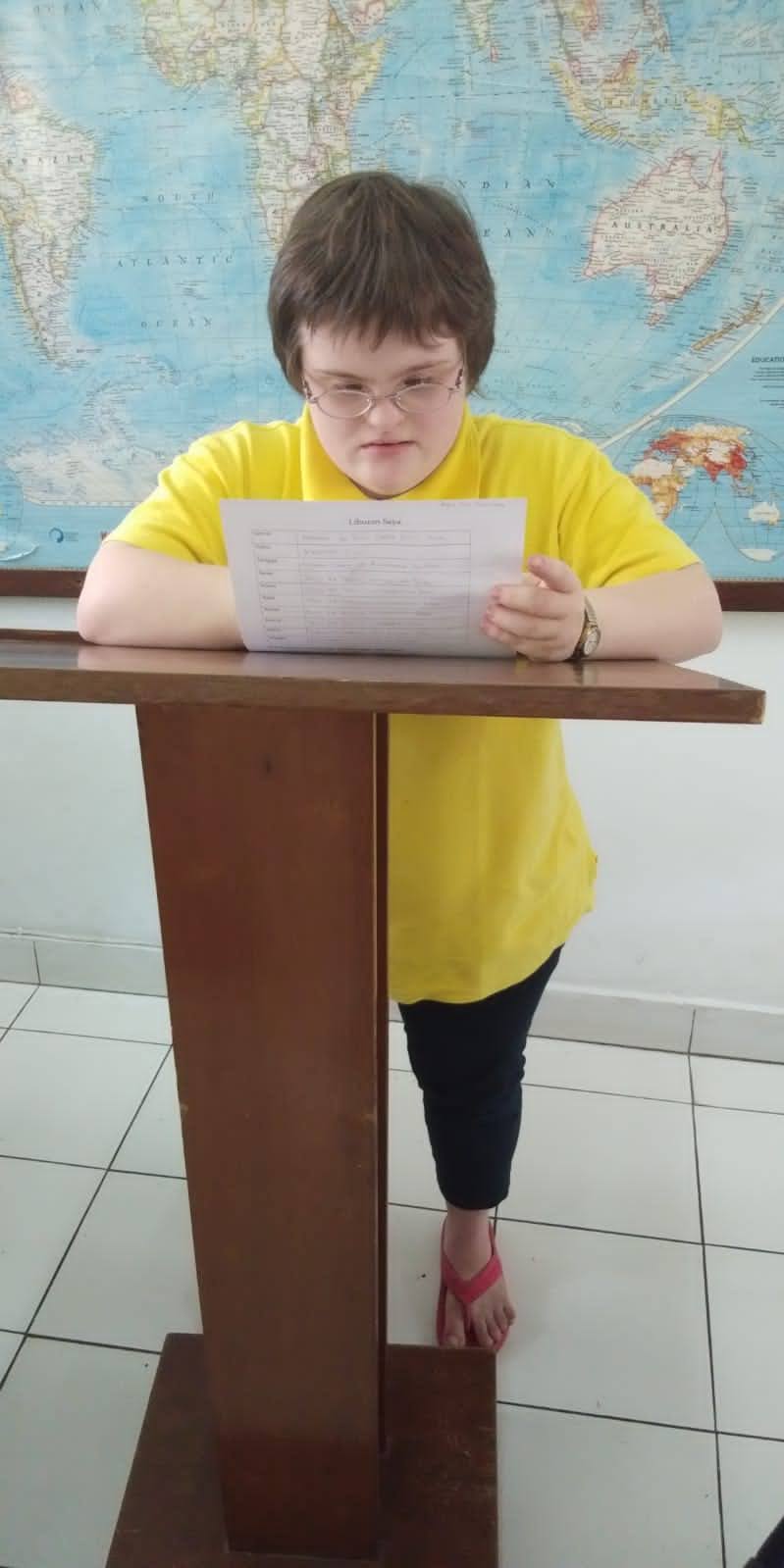 In each video, we highlighted one aspect that contributed to Anna’s success and happiness as a person with Down syndrome. For example, in her first speech, Anna, using the Indonesian language, introduced herself and her topic by saying, “Good afternoon, ladies and gentlemen. My name is Anna Joy. Today, I would like to share with you one of the secrets to my happiness in life. That secret is: I Like to Read.”
In each video, we highlighted one aspect that contributed to Anna’s success and happiness as a person with Down syndrome. For example, in her first speech, Anna, using the Indonesian language, introduced herself and her topic by saying, “Good afternoon, ladies and gentlemen. My name is Anna Joy. Today, I would like to share with you one of the secrets to my happiness in life. That secret is: I Like to Read.”
Anna’s ability to read, in itself, exceeded every category her Indonesian audience had of people with Down syndrome. Other video topics included the role of hymns and spiritual songs, aides, accommodations, hobbies and self-control in helping Anna to succeed in developing into a well-rounded human being. Feedback from seminary students that saw her videos included statements like this: “This video makes me aware that, truly, I must be more thankful for what I’ve been given…I’m going to read more!”
Every week for seven weeks, we sent off a video to Pak Hery who, in turn, forwarded it to the students at his seminary with a request for their feedback. Every week, Pak Hery forwarded me the student feedback. Anna’s videos were making quite an impact on the seminary students. They were opening up and sharing thoughts and feelings that came from their hearts. Pak Hery was thrilled!
Anna and I called our work, “The Video Project.” We started working on it in early May, 2020 and finished towards the end of June at which time the seminary was pleased to give Anna a certificate recognizing her skills as a public speaker. Now, in mid-September (2020), we are in the States on furlough. Anna’s application for a visa is filed with the immigration office, and we should know by the end of the year if she’ll get to work as a motivational speaker.
Reflections
Our visa agent is optimistic about Anna’s chances of getting a visa as a motivational speaker, despite the fact that Indonesian immigration has never before processed a visa for a cognitively disabled foreigner. However, EVEN IF this visa doesn’t come through at this time, I’ve learned so much about the high calling contained within weakness and disability. It would have been so much easier if we could have settled for a humanitarian visa, a visa tailor-made for people like our daughter. But in that case, we might never have dared to dream or to attempt the impossible, thus closing the door for Anna to discover her call to missions.
Having to do the harder thing has required us to exercise faith, which put us in a position to experience God’s miraculous provision.
By closing the door to the humanitarian visa, God was able to direct us to where HE wanted to go, namely the uplift of the cognitively disabled in Indonesia. In Anna Joy, the Indonesian people now have an example of what’s possible.
Please join us in praying that the Lord would open the eyes of the decision-makers in Indonesian immigration so that Anna might join us in the mission as a motivational speaker.
Written By—Bonnie Armistead
A 26-year veteran missionary, Bonnie Armistead has raised three children with different disabilities in Indonesia. Her daughter, Anna Joy, who has Down syndrome, partners with her parents’ Indonesian disability ministry.
Edited by David C. Deuel & Nathan G. John
Disability in Mission
Disability in Mission: The Church’s Hidden Treasure outlines a radical change in approaches to missiology, missions, and praxis for the twenty-first-century global cultural context. It explores a pattern whereby God works powerfully in missions through disability and not in spite of it.
Pray with Us
Heavenly Father, we come before you requesting a miracle. Lord of disability, please change our hearts. We confess that we doubt or dismiss people with disabilities. But worse, we pridefully make them objects of pity when instead we should see your calling and giftedness in their lives.
Please use this book’s testimonies of your sufficient grace. May the many missionary lives lived faithfully with disability remind us that called and gifted people with disabilities are platforms for your enablement, showcases for your glory. Remind us that disability is your stage for shocking a watchful world.
We believe that you can and will heal all disabilities. But on your disability stage, display your power by changing our hearts.

